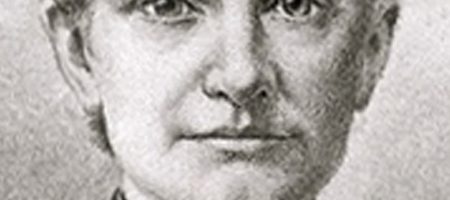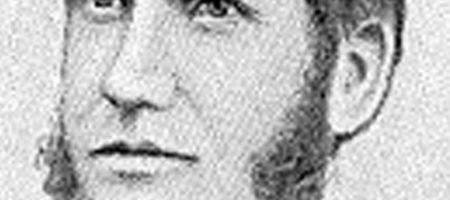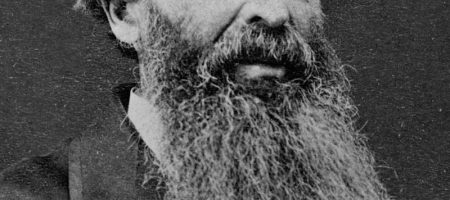Narcissa May 1840
Rev. Mrs. H.K.W. Perkins, Wascopum
WIELETPOO
May 2, 1840
My Dear Mother:
I cannot describe how much I have longed to see you of late. I have felt the want of your sympathy, your presence and counsel more than ever. One reason doubtless is it has been so long since I have received a single letter from any one of the dear friends at home. Could they know how I feel and how much good their letters do me, they would all of them write a great deal and write often, too, at least every month or two, and sent to Boston and to Westport, to the care of Rev. Joseph McCoy; they would surely reach us. Our associates receive them in great numbers, which does not make us feel any better for ourselves. We are daily expecting the arrival of Mr. Lee’s ship, laden with associates for that mission, and we have the encouragement from the board to expect four or five families for our own mission. By them we hope to receive letters in abundance. It is a consoling thought to us that we are permitted the prospect of having other fellow laborers to join us again so soon. We feel that we cannot do our work too fast to save the Indian-the hunted, despised and unprotected Indian-from entire extinction.
A tide of immigration appears to be moving this way rapidly. What a few years will bring forth we know not. A great change has taken place even since we first entered the country, and we have a reason to believe it will stop here. Instead of two lonely American females we now number fourteen, and soon may twenty or _______ more, if reports are true. We are emphatically situated on the highway between the states and the Columbia River, and are a testing place for the weary travelers, consequently a greater burden rests upon us than upon any of our associates-to be always ready. And doubtless many of those who are coming to this mission their resting place will be with us until they seek and find homes of their own among the solitary wilds of Oregon.
Could dear mother know how I have been situated the two winters past, especially winter before last, I know she would pity me. I often think how disagreeable it used to be to her feelings to do her cooking in the presence of men-sitting about the room. This I have had to bear ever since I have been here-at times it has seemed as if I could not endure it any longer. It has been the more trying because our house has been so miserable and cold-small and inconvenient for us-many people as have lived in it. But the greatest trial to a woman’s feelings is to have her cooking and eating room always filled with four or five or more Indians-men-especially at meal time, but we hope this trial is nearly done, for when we get into our other house we have a room there we devote to them especially, and shall not permit them to go into the other part of the house at all. They are so filthy they make a great deal of cleaning wherever they go, and this wears out a woman very fast. We must clean after them, for we have come to elevate them and not to suffer ourselves to sink down to their standard. I hardly know how to describe my feelings at the prospect of a clean, comfortable house, and one large enough so that I can find a closet to pray in.
As a specimen I will relate a circumstance that occurred this spring. When the people began to return from their winter quarters, we told them it would be good for them to build a large house (which they often do by putting several lodges together) where it would be convenient for all to attend worship and not meet in the open air. They said they should not do it, but would worship in our new house and asked us if there were not houses in heaven to worship in. We told them our house was to live in and we could not have them worship there for they would make it so dirty and fill it so full of fleas that we could not live in it. We said to them further, that they did not help us build it and that people in other places build their houses of worship and did not let one man do it all alone, and urged them to join together by and by and build one for themselves of adobe. But it was of no avail to them; they murmured still and said we must pay them for their land we lived on. Something of this kind is occurring almost all the time when certain individuals are here; such as complaining because we do not feed them more, or that we will not let them run all over the house, etc., etc.
They are an exceedingly proud, haughty and insolent people, and keep us constantly upon the stretch after patience and forbearance. We feed them far more than any of our associates do their people, yet they will not be satisfied. Notwithstanding all this, there are many redeeming qualities in them, else we should have been discouraged long ago. We are more and more encouraged the longer we stay among them.
They are becoming quite independent in cultivation and make all their ground look as clean and mellow as a garden. Great numbers of them cultivate, and with but a single horse will take any plow we have, however large, and do their own ploughing. They have a great thirst for hogs, hens and cattle, and several of them have obtained them already.
Our greatest desire and anxiety is to see them becoming true Christians. For this we labor and pray, and trust in God for the blessing on our labors. But the labor is great and we are weak and feeble, and sometimes are ready to faint. We need the prayers of our Christian friends at home and I trust we have them. Could they know just how we are situated and all our discouragement I know they would pray more ardently for us and more importunately for us.
Dear father, I will relate one more anecdote and then must close. Te-lou-ki-ke said to my husband this morning: “Why do you take your wife with you to Mr. Walker’s? Why do you not go alone? You see I am here without my wife; why do you not go alone? You see I am here without my wife; why do you always want to take your wife with you when you go from home? What do you make so much of her for?” He told him it was good for me to go with him; that we were one, and that wives were given as companions. He replied “that it was so with Adam because a rib was taken from him to make his wife, but it was not so now; it was different with us.” This has often been brought up by them; the way I am treated, and contrasted with themselves; they do not like to have it so; their consciences are troubled about it. May they be more and more so until a reformation is made among them.
Plan of the mission house at Wieletpoo, drawn by Asabel Munger. We have made it larger than it was originally intended at the suggestion of Mr. Hall, so as to be more convenient to accommodate the general meeting of the mission.
A-Our own sleeping room. B-Parlor. C-Dining Hall. D-Indian Hall. E-Kitchen. F-Pantry. G-Sleeping room for Joseph and wife, our domestics. H-Cellar and room above for boys. I-Storehouse. K-Hen house. LL-Privy house-double. W-Clothes press. X-Chest of drawers set in the wall. P-Book case. O-Show case for natural curiosities, and the lower part for bed and table linen. The upper part of both of glass; also set in the wall. R-Cupboard. T-Stairs. U-Medicine case. V-Stove. Seven large windows, the remainder are small. A, I and K are yet to be built, probably this summer. M-Turkey house of wood and yard. This is all we have made.
We give you the probable plan of our yard, which we need very much; but it is yet to be built. N is the place where Alice Clarissa fell into the river, and but a short distance below, she was found. S is in the direction of her little grave, further off than is represented by this view. The exterior does not look as well as the interior. The roof is made of poles, straw and dirt thrown upon the top. It will look better when it is whitewashed on the outside. We paint the wood work a light slate color; the front door, outside, green; the floors with yellow ochre; pantry shelves the same.
I do not know how many of my letters reach home or whether any of them. I write and send twice a year to some of them. I hope all who write will be careful to mention the reception of all our letters, so then we shall know what ones fail and what reach you.
Please give our love to all our friends who are interested in us, and accept much for dear father, mother and all the family.
Your affectionate daughter,
NARCISSA WHITMAN.




